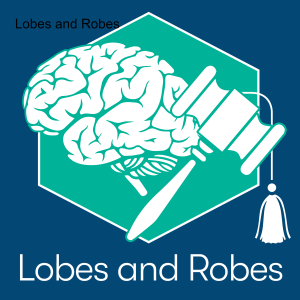
Tuesday Jun 24, 2025
SEASON 4, EPISODE 4: USING SCIENTIFIC EVIDENCE IN COURT
In this final episode of Season 4, we welcome Gustavo Ribeiro, an associate professor of law at American University Washington College of Law, who specializes in evidence, civil procedure, and the philosophical dimensions of legal proof. Professor Ribeiro, who will become the new co-host of Lobes & Robes in Season 5, discusses the complex challenges of using scientific evidence in courtrooms.
Our conversation explores how law and science operate as different "epistemic cultures" with fundamental tensions: courts require finality and certainty, while science embraces uncertainty and ongoing revision; legal proceedings focus on individual cases, while science typically deals with group averages and generalizations. Professor Ribeiro explains the landmark 1993 Supreme Court case Daubert v. Merrell Dow Pharmaceuticals, which established criteria for determining when scientific evidence is sufficiently reliable for courtroom use, including testability, peer review, error rates, and general acceptance in relevant scientific communities.
The discussion addresses several pitfalls in the use of scientific evidence, particularly how jurors may overvalue technical testimony or struggle when faced with contradictory expert opinions. Professor Ribeiro highlights recent scrutiny of forensic science techniques, noting that while DNA evidence has generally proven reliable, many other forensic methods have been found lacking in scientific rigor.
We conclude the episode by examining the special concerns of using neuroscience evidence in court, including the "brain overclaim syndrome" where brain-based explanations may be given undue weight despite limited supporting data or flawed logic in connecting neuroscience findings to legal questions.
No comments yet. Be the first to say something!